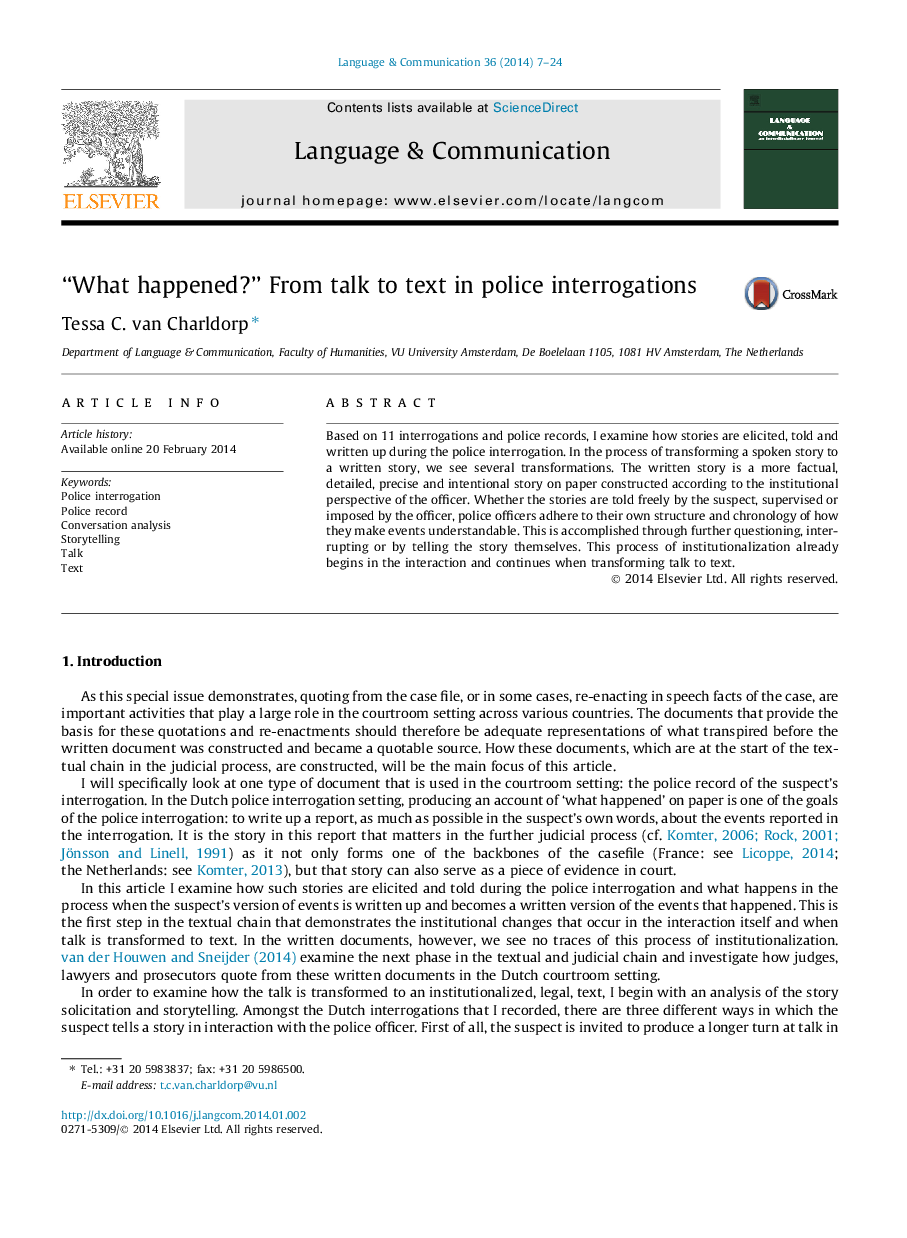| Article ID | Journal | Published Year | Pages | File Type |
|---|---|---|---|---|
| 934835 | Language & Communication | 2014 | 18 Pages |
•Stories elicited and told during interrogations can be free, supervised or imposed.•Officers adhere to their own structure and chronology to make events understandable.•Institutionalization begins in the first phase of the textual chain: interaction.•The story in the record cannot be understood without its interactional context.
Based on 11 interrogations and police records, I examine how stories are elicited, told and written up during the police interrogation. In the process of transforming a spoken story to a written story, we see several transformations. The written story is a more factual, detailed, precise and intentional story on paper constructed according to the institutional perspective of the officer. Whether the stories are told freely by the suspect, supervised or imposed by the officer, police officers adhere to their own structure and chronology of how they make events understandable. This is accomplished through further questioning, interrupting or by telling the story themselves. This process of institutionalization already begins in the interaction and continues when transforming talk to text.
